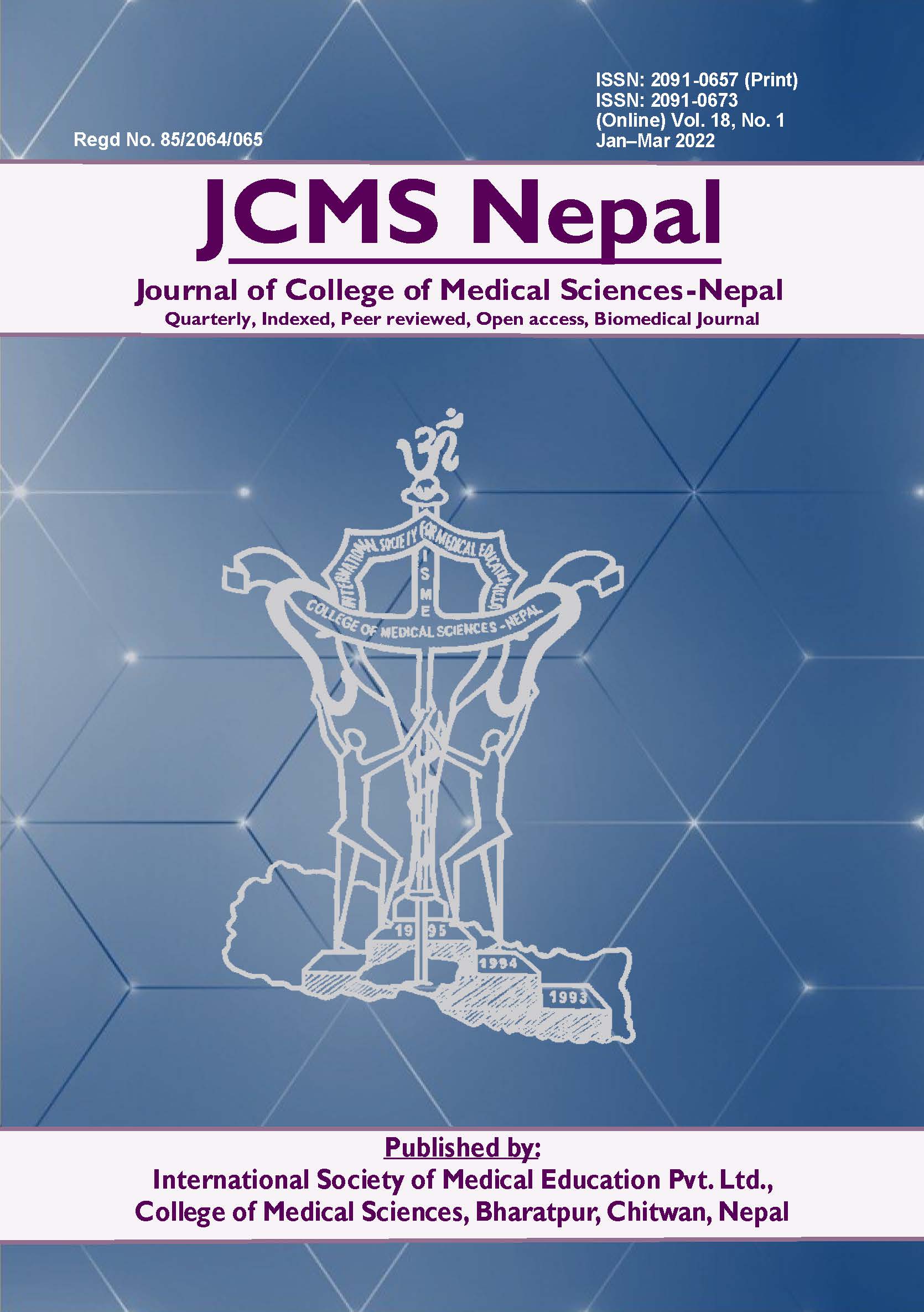2-Deoxy D-Glucose in COVID-19: Current Research Trends
DOI:
https://doi.org/10.3126/jcmsn.v18i1.37651Keywords:
Coronavirus infections; COVID-19 drug treatment; drug development; pharmacology; therapeutics; SARS-CoV-2.Abstract
2-Deoxy D- glucose is a novel drug. It is an analogue of glucose which has innate therapeutic uses due to both its antiviral properties as well as its anti-neoplastic action. The SARS-CoV-2 virus binds to the host cell via the (S2) spike glycoprotein. Once viral entry has been gained into the host cell the virus hijacks the host’s intracellular machinery via 2 factors; 3CLpro
and NSP15. It has been shown through the use of Toxicity estimation software as well as via Molinspiration that 2-Deoxy D- glucose and its aforementioned isomers can effectively bind with 3CLpro and NSP15 and intern thus immobilize the SARS-CoV-2 virus via the incapacitation of its viral receptors. On a molecular level the 2-Deoxy D- glucose derivatives produce a H bond with the glutamine AA residues of the SARS-CoV-2 (S2) spike, as well form a Hydrogen bond with the 2 Deoxy D-glucose and proline residues of the SARS-CoV-2 protease. It is thus evident via both molecular and in silico studies that 2 Deoxy D- glucose and its isomers have the ability to offer further protection and or have imperative diminution capabilities in the treatment of patients with the COVID-19 infection. 2-Deoxy D- glucose has shown promising results in clinical trials and has produced faster recovery in hospitalized patients and abridged additional oxygen dependence in COVID-19 patients in various states across India. The scope and potential for the use of 2-Deoxy D- glucose in the treatment of COVID-19 is evident. It is therefore of great importance that further in vivo studies are conducted with 2-Deoxy D-glucose in order to expedite the process of bringing this potentially lifesaving drug to market.
Downloads
Downloads
Published
How to Cite
Issue
Section
License
Copyright (c) 2022 Jared Robinson, Indrajit Banerjee, Alexandra Leclézio

This work is licensed under a Creative Commons Attribution-NonCommercial-NoDerivatives 4.0 International License.
This license enables reusers to copy and distribute the material in any medium or format in unadapted form only, for noncommercial purposes only, and only so long as attribution is given to the creator.




